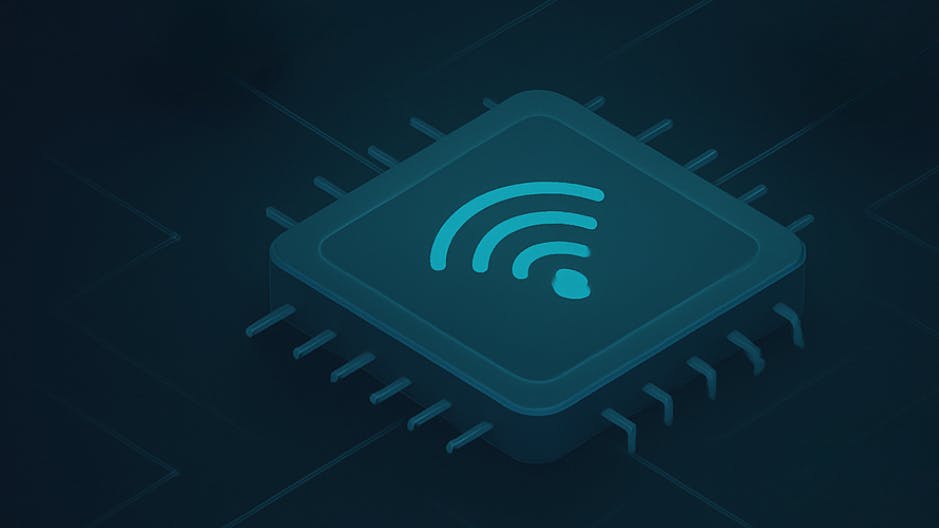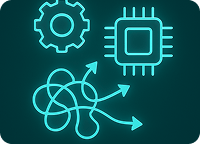DePIN
DePIN: Decentralized Infrastructure for the Physical World
Our DePIN solutions help enterprises decentralize physical infrastructure across compute, storage, and IoT.
We design token-based incentive models, on-chain coordination layers, and integrate real-world assets into Web3 networks, helping enterprises reduce central points of failure and optimize resource utilization.
Want to know more about DePIN? Let us explore what DePIN is, how it works, why are enterprises embracing it, and how your business can leverage this model for innovation, efficiency, and decentralization.

What is DePIN?
DePIN refers to decentralized networks that rely on blockchain to coordinate and incentivize the deployment and maintenance of real-world infrastructure. Instead of relying on centralized corporations, DePIN projects allow individuals and enterprises to contribute resources (hardware, bandwidth, power) and earn token-based rewards for their participation.
Smart Contracts
Govern infrastructure usage, rewards, and service levels with immutable logic.
Token Incentives
Encourage participation by rewarding contributors with utility or governance tokens.
Decentralized Governance
Enable stakeholders to vote on network upgrades, protocols, and resource allocations.
Real-Time Data Feeds
Devices generate and transmit real-world data, secured and timestamped on-chain.
Why are enterprises embracing DePIN
Enterprise Use Cases of DePIN
Telecom and Wireless Infrastructure
Telecom and Wireless Infrastructure
Launch decentralized 5G or WiFi networks by incentivizing device owners to host access points. Reduce reliance on centralized telecom operators.
Decentralized Energy Grids
Decentralized Energy Grids
Tokenize excess solar or wind energy and facilitate peer-to-peer energy trading. Automate settlements between producers and consumers using smart contracts
IoT Sensor Networks
IoT Sensor Networks
Deploy decentralized networks of environmental or logistical sensors. Secure and monetize real-time data via blockchain.
Smart Cities
Smart Cities
Enable decentralized control over traffic lights, surveillance systems, and public utilities. Improve transparency, responsiveness, and citizen participation.
Mobility Services
Mobility Services
Facilitate autonomous ride-sharing or electric vehicle charging networks. Use blockchain to authenticate users, settle payments, and optimize usage.
Agricultural Monitoring
Agricultural Monitoring
Decentralized networks of soil, weather, and crop sensors. Enable data-driven decisions and farming-as-a-service models....
Challenges in DePIN Adoption for Enterprises

Coordination in decentralized ecosystems

Verification of physical assets

Incentive alignment

Hardware deployment complexity

Coordination in decentralized ecosystems
Coordination in decentralized ecosystems
Ensuring consistent performance from distributed participants is complex.

Verification of physical assets
Verification of physical assets
Enterprises need ways to authenticate the real-world assets linked to digital tokens.

Incentive alignment
Incentive alignment
Poorly designed token models can lead to inactive or exploitative behavior.

Hardware deployment complexity
Hardware deployment complexity
Managing decentralized hardware logistics at scale poses operational challenges.
How We Help Enterprises Embrace DePIN
At Ancilar, we offer tailored DePIN development and integration services to meet your enterprise needs:
DePIN Consulting
Identify how DePIN fits your existing business model or operational needs.
Infrastructure Tokenization
Develop token models that align with your infrastructure usage and rewards.
Custom Smart Contracts
Code secure, scalable contracts to govern network behavior, access control, and payouts.
Hardware & Device Integration
Connect physical assets to blockchain with real-time data flows.
Decentralized Governance Tools
Set up DAO frameworks to manage infrastructure collaboratively.
End-to-End Deployment Support
From proof-of-concept to full production rollouts, we guide you at every step.
Frequently Asked Questions
DePIN leverages blockchain and tokenization to create a decentralized, transparent model where incentives are built-in and communities can actively participate. Traditional outsourcing lacks this trustless and distributed architecture.
Yes. DePIN models can be adapted to meet compliance requirements using hybrid architectures (e.g., permissioned smart contracts, identity frameworks).
You can begin with minimal investment—using existing hardware or low-cost IoT devices—and scale up as the network grows and gains adoption.
Absolutely. We offer integration layers and APIs that connect DePIN ecosystems to your enterprise software stack.
The Time to Act Is Now
DePIN is reshaping how physical infrastructure is deployed, governed, and monetized. For enterprises, this means greater agility, new business models, and long-term resilience. By transitioning from centralized infrastructure to decentralized, token-incentivized networks, forward-thinking organizations can lead in the next era of physical innovation.
🚀 Ready to explore DePIN for your enterprise?
For a personalized DePIN consultation with our experts